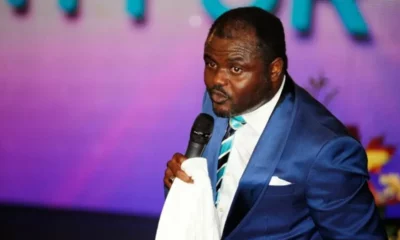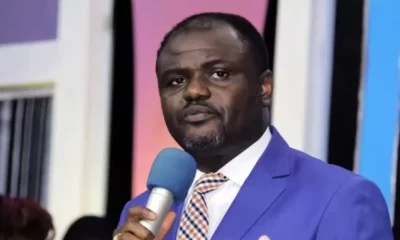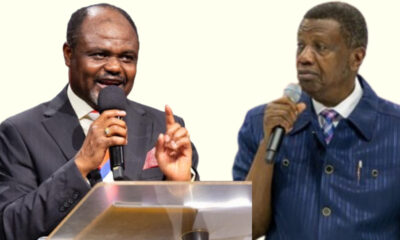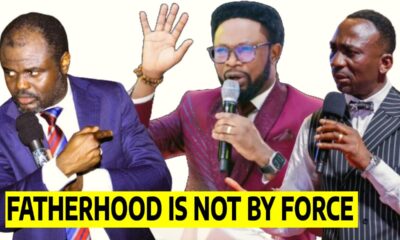Nigeria News
‘Sin cannot take one to hell’ – Concerns over Abel Damina’s controversial sermons

In recent weeks, the Nigerian public has been deeply engaged and, at times, stirred by the thought-provoking and unconventional sermons delivered by the founder of Abel Damina Ministries, widely known as Power City International Church.
Abel Damina, a preacher who initially rose to prominence with the visionary goal “To Re-Introduce Jesus To Our World,” has emerged as a central figure in a heated theological debate, IDOMA VOICE reports.
His teachings, which challenge established interpretations of biblical texts and theological beliefs, have generated considerable interest and concern among Nigerians from all walks of life.
One of the most contentious aspects of Damina’s recent sermons is his audacious assertion that certain pivotal events in the Bible have been widely misunderstood or misrepresented.
Notably, he has boldly challenged the traditional narrative that God instructed the biblical figure Noah to construct the ark during the great flood.
This interpretation stands in stark contrast to the Book of Genesis, which meticulously details God’s direct and unequivocal instructions to Noah.
In these passages, God commissions Noah to build the ark, instructing him on its design, purpose, and the gathering of the animals—a pivotal narrative that has shaped Judeo-Christian theology for millennia.
Another area of theological contention arises from Damina’s unconventional interpretation of the biblical account involving Moses. In particular, he has contended that Moses did not witness the commonly held belief that he saw God’s back.
This challenges the conventional understanding of Exodus 33:18-23, a pivotal passage in the Bible.
According to this passage, Moses implores God to reveal His glory. In response, God articulates His divine nature and the impossibility of any human beholding His face. Instead, God permits Moses to witness His glory indirectly, seeing His back as He passes by—a sacred encounter that has profoundly influenced religious thought and exegesis.
In addition to these reinterpretations, Dr. Damina has put forth bold and unconventional claims that have sent shockwaves through the theological community.
Among these claims is his assertion that sin possesses no capacity to condemn individuals to hell, challenging deeply ingrained soteriological beliefs.
He has also posited that success is not necessarily contingent upon a divine connection, defying the traditional understanding of divine providence and blessing.
Furthermore, Dr. Damina has ventured into the realm of cosmology by proclaiming that God does not exclusively dwell in heaven—a belief that diverges from the traditional Christian teachings that emphasize God’s heavenly abode.
These controversial teachings have ignited concerns among many Nigerians, both within and outside the Christian community. For some, Dr. Damina’s interpretations appear unorthodox, potentially misleading, and an affront to established theological doctrines. Others view his perspectives as refreshing, thought-provoking, and an invitation to reexamine long-held beliefs. Consequently, Dr. Damina’s sermons have triggered vibrant debates and discussions across various platforms, further fueling the ongoing theological discourse within Nigeria.
The controversy surrounding his sermons has expanded into a broader conversation about the role of interpretation, tradition, and theological authority in matters of faith and spirituality—an enduring dialogue that will undoubtedly persist as individuals seek to navigate the complex intersection of faith and reason in an ever-evolving world.





















